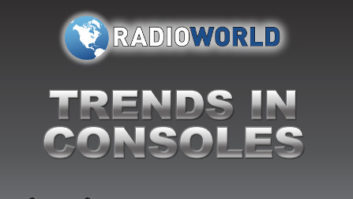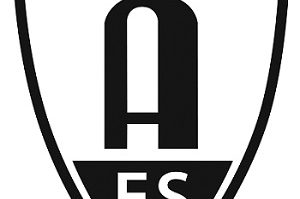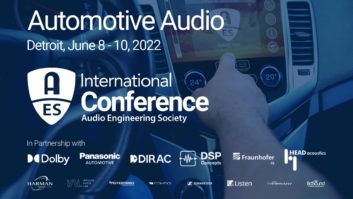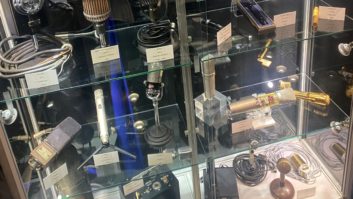
Photo by Bob Kovacs
We’ve been talking a lot in Radio World about networked audio lately; and it’s a topic that also will take a prominent role at the upcoming AES convention in San Francisco.
A new track of workshops will focus on networked audio. They were organized by Track Chair Tim Shuttleworth in collaboration with Nathan Brock, who passed away recently.
Audio Network Device Connection and Control — Chair, Richard Foss, Rhodes University; Panel: Jeff Koftinoff: MeyerSound; Robby Gurdan, UMAN; Andreas Hildebrand, ALC NetworX; Kieran Walsh, Audinate. Panelists will demonstrate “how they have enabled the discovery of audio devices on local area networks, their connection management and control over their various parameters. Issues related to streaming audio, such as bandwidth management and synchronization, and connection management and control protocols will be discussed.”
The Unified AV Network — Chair Rob Silfvast, AVID. This panel is an overview of the AVnu Alliance, a consortium of audio and video product makers and core technology companies. “Committed to delivering an interoperable open standard for audio/video, networked connectivity, AVnu offers a logo-testing program that allows products to become certified for interoperability,” according to organizers. Representatives from member companies will provide insights about AVB technology and participation.
Interoperability Issues in Audio Transport Over IP-Based Networks — Chair, Tim Shuttleworth; Panel: Lee Minich, Lab X Technologies/AVnu Alliance; Kevin Gross, AVA Networks/AES X-192; Sonja Langhans, IRT Munich; Greg Shay, Telos/Axia. This workshop will focus on two key areas of audio/media transport over IP based networks: Multichannel Audio distribution over Ethernet LANs for low-latency, high-reliability interconnections in home, automobile and commercial environments; and the interoperability of audio contribution, over Internet Protocol (ACIP and ACIP2). “These issues will be addressed from both the European and U.S. perspectives. Issues include challenges and solutions in achieving reliable content distribution.”
Audio Networks, a Paradigm Shift for Broadcasters — Chair, Stefan Ledergerber, Lawo, Germany; Panel: Sonja Langhans, IRT Munich; Andreas Hildebrand, ALC Networx; Lee Minich, Lab X Technologies/AVnu alliance; Greg Shay, Telos/Axia; Kevin Gross, AVA Networks/AES X-192. With the emergence of a variety of audio networking technologies, many broadcast organization workflow-related questions remain unanswered. This panel will address a number of these hot topics e.g. Will traditional cross-point, matrix switches (routers) be replaced by networks? Which component will deal with signal processing, currently accomplished within audio routers?Which department is best equipped for handling audio networks: audio or IT? And, how do we educate personnel to deal with audio networks?
Error-Tolerant Audio Coding — Chair, David Trainor, CSR; Panelists: Gary Spittle, Dolby; Deepen Sinha, ATC Labs (tbc) and Juergen Herre, Fraunhofer IIS (tbc). Organizers cite key trends: “The increasing delivery of real-time audio services over the Internet or cellular networks; and, the variable capacity and reliability of these networks for real-time audio streaming. This workshop will discuss the capabilities of error-tolerant audio coding algorithms and, recent advances in the state of the art.”
Open IP Protocols for Audio Networking — Chair, Kevin Gross, CobraNet, QSC. The session is a tutorial to “address the conundrum resulting from the networking and telecommunication industry’s multiplicity of protocols for carriage of audio and video over IP networks. These protocols have been widely deployed for telephony and teleconferencing applications, Internet streaming and cable television. A variety of these protocols and their capabilities and limitations will be addressed.” They include IP, VoIP, IPTV, HTTP streaming, Real-time transport protocol (RTP), RTCP and RTSP, and IEEE-1588 Precision time protocol (PTP). Gross will also provide an overview of AES standards work, X192.












